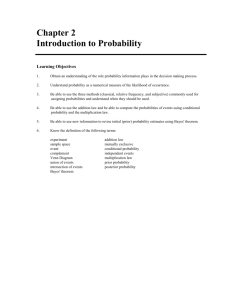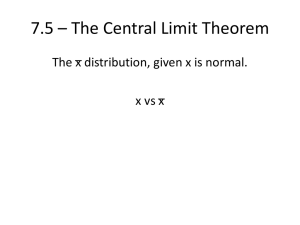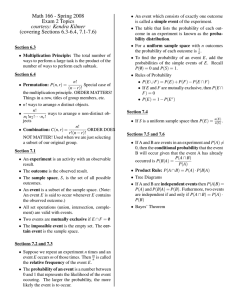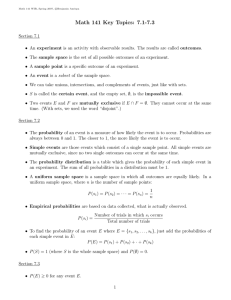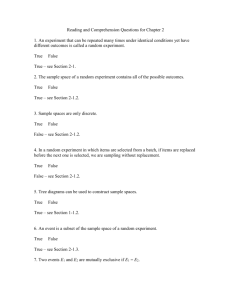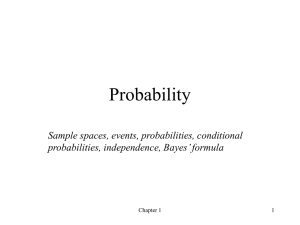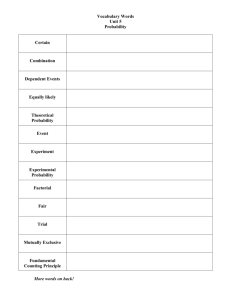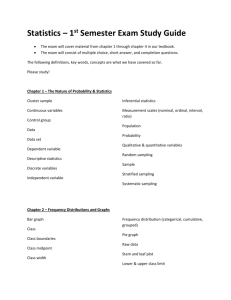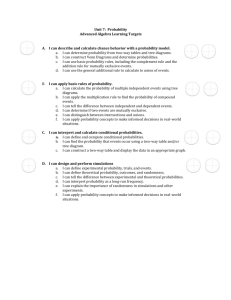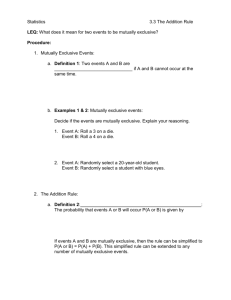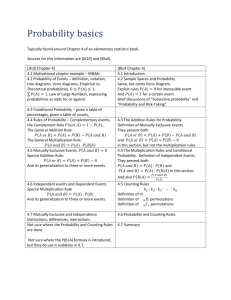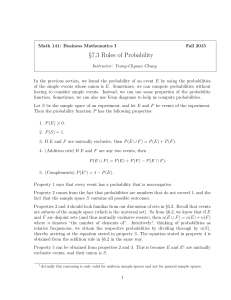5.2 Notes
advertisement
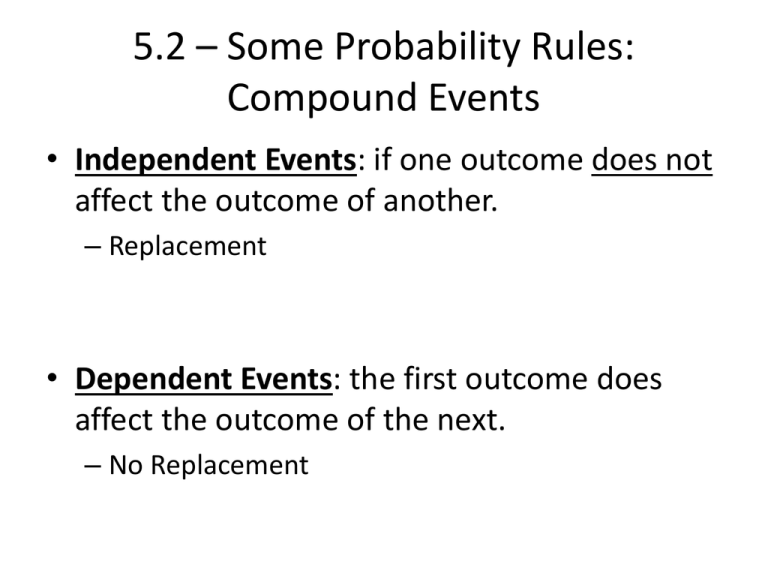
5.2 – Some Probability Rules: Compound Events • Independent Events: if one outcome does not affect the outcome of another. – Replacement • Dependent Events: the first outcome does affect the outcome of the next. – No Replacement Important Information/Terminology • • • • • Independent: Dependent: “and” “or” Conditional Probability: P(A, given B occurred) • Enberg is AWESOME Multiplication Rules “AND” • Multiplication Rule for Independent Events P(A and B) = P(A) ∙ P(B) • Multiplication Rule for Dependent Events P(A and B) = P(A) ∙ P(B, given A has occurred) *If P(A) = P(A, given B), then the events are independent. *If P(A) ≠ P(A, given B), then the events are dependent. Guided Exercise #4 and #5 • As whole group, turn to page 173-174 – Look-over answers – Whole group clarification Additional Information • More than two independent events • Mutually Exclusive / Disjoint: if they cannot occur together. P(A and B) = 0 Addition Rules “or” • Addition Rule for Mutually Exclusive Events: P(A or B) = P(A) + P(B) • General Addition Rule for Any Events: P(A or B) = P(A) + P(B) – P(A and B) Guided Exercise #7 and #8 • As whole group, turn to page 177-178 – Cover answers – Whole group clarification Guided Exercise #9 • As whole group, turn to page 180-181 – Cover answers – Whole group clarification • Important Summary on P. 181 in orange box Checkpoint Compute probabilities of general compound events Compute probabilities involving independent events or mutually exclusive events Use survey results to compute conditional probabilities. Homework • Read Pages 169-182 – Take notes on what we have not covered • Do Problems – Page 182-187 (1-19) odds • Check odds in back of book • Read and preload 5.3 information – Notes/vocab
